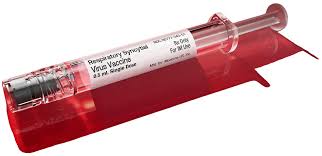
Introduction to RSV and Vaccine Development
Respiratory Syncytial Virus (RSV) is a major cause of respiratory illness in infants and the elderly, resulting in significant morbidity and mortality each year. With the global rise in respiratory infections, the development of an effective RSV vaccine has become increasingly crucial for protecting vulnerable populations. Recent advancements in research and clinical trials highlight the progress in creating vaccines that could significantly reduce the incidence of RSV outbreaks.
Significant Developments in RSV Vaccination
In October 2023, the Centers for Disease Control and Prevention (CDC) announced that several RSV vaccines are on the verge of receiving emergency use authorization. These vaccines have shown promising results in clinical trials, indicating their effectiveness in preventing RSV-related illnesses while maintaining a favorable safety profile. Among the key players in this field are pharmaceutical giants such as Pfizer, Moderna, and GlaxoSmithKline, all of which have developed innovative mRNA and protein-based vaccines that target RSV directly.
In clinical trials, Pfizer’s RSV vaccine demonstrated a 75% efficacy rate in preventing severe RSV disease in young infants when administered to pregnant individuals. This vaccine, by providing antibodies to the fetus, could change the landscape of how we protect newborns from RSV, which accounts for millions of hospital visits each year.
Broader Implications of Vaccination
The RSV vaccine is expected to have broad implications for public health, especially as healthcare systems grapple with the impact of continuous respiratory viruses. By vaccinating pregnant individuals, the protection extends to newborns, helping to alleviate healthcare resources consumed by RSV-related admissions.
Additionally, as COVID-19 regulations ease, healthcare providers are also preparing for a potential surge in RSV cases. Vaccination efforts can play a vital role in reducing this burden, especially during the winter months when RSV infections peak.
Conclusion: The Future of RSV Vaccines
As researchers and healthcare professionals remain dedicated to tackling respiratory illnesses, the development of the RSV vaccine stands out as a beacon of hope. With promising clinical data and impending authorization, the RSV vaccine represents a significant step forward in safeguarding public health. Parents and caregivers should stay informed and consider vaccination options for themselves and their children as more information becomes available. The RSV vaccine not only has the potential to save lives but also to protect healthcare systems from becoming overwhelmed by seasonal respiratory infections.



